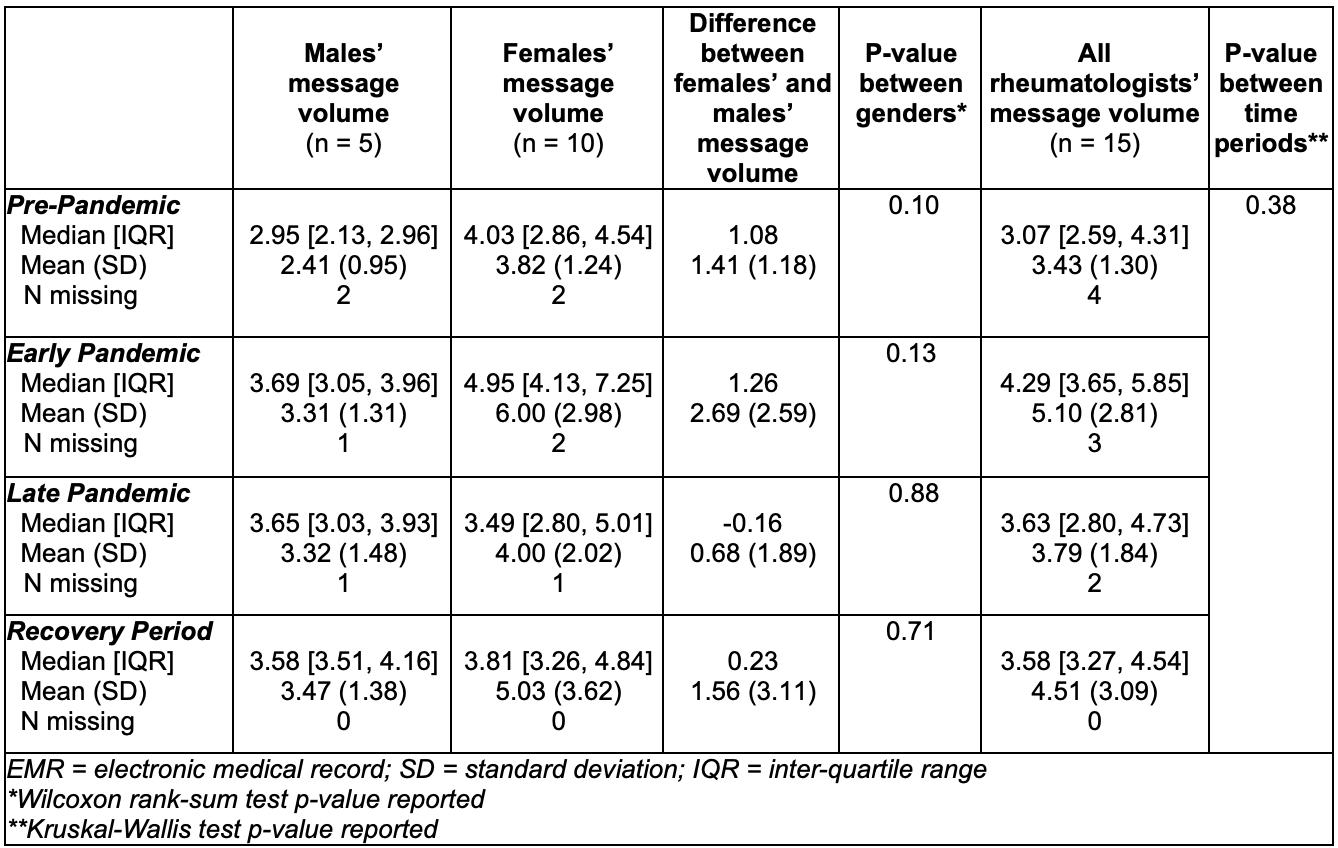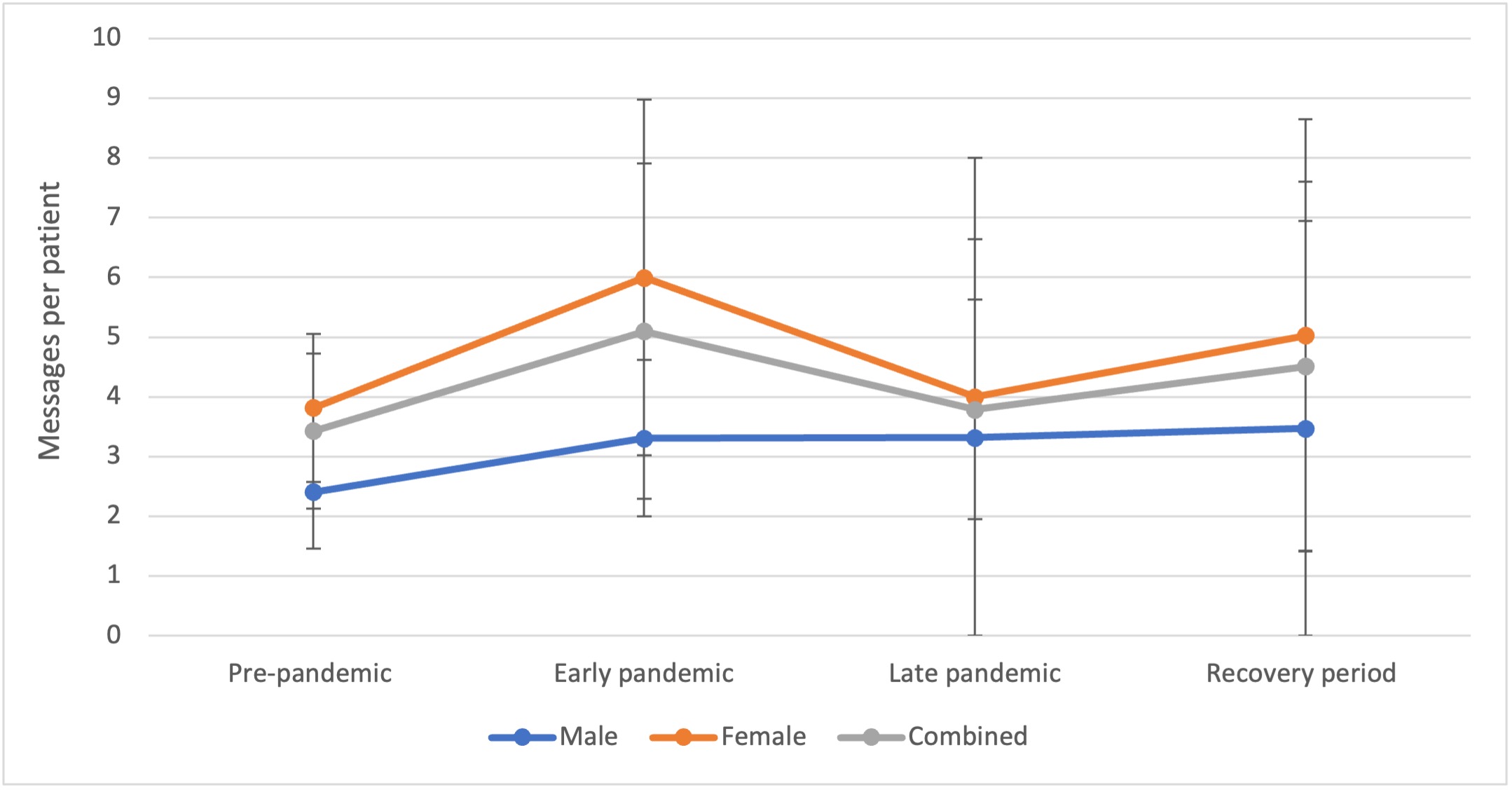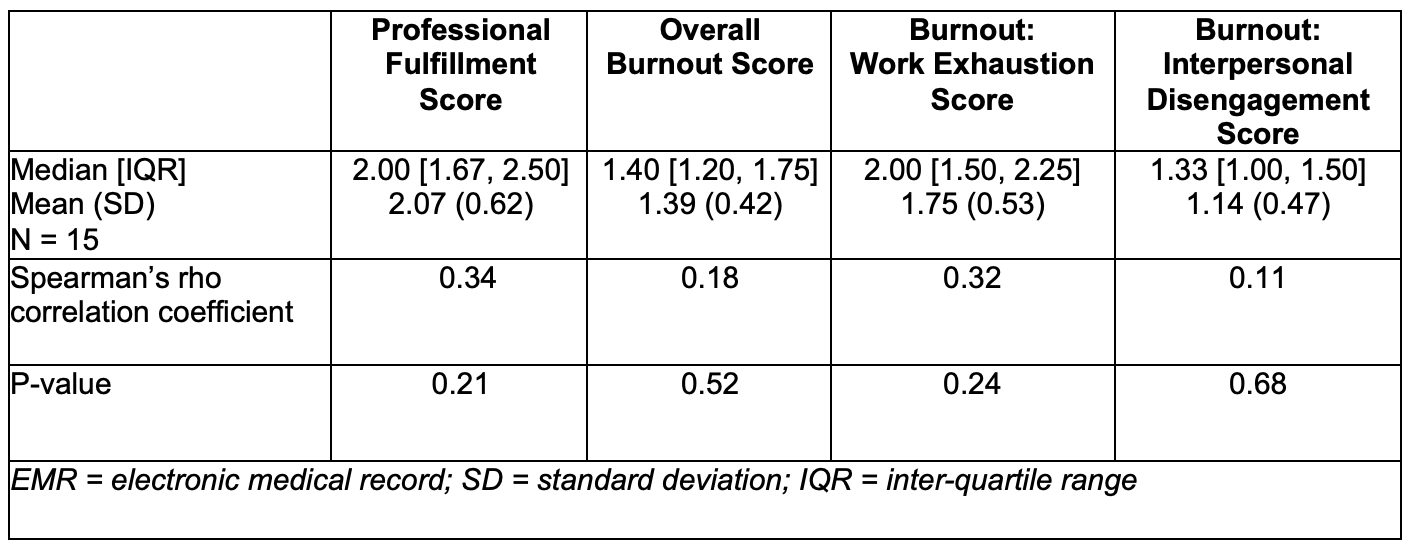Session Information
Session Type: Poster Session A
Session Time: 10:30AM-12:30PM
Background/Purpose: As Rheumatology faces a workforce shortage, factors contributing to physician burnout are crucial to address. Research in other specialties suggests that increased electronic medical record (EMR) message volume is associated with physician burnout, that EMR messages have increased since the COVID pandemic, and that female physicians receive more messages than male counterparts. This study investigated whether these patterns apply to rheumatologists affiliated with an academic center.
Methods: Clinical attending rheumatologists (n=25) practicing at a single academic center and its affiliated clinics received an email inviting participation. Participants completed the Professional Fulfillment Index (PFI) questionnaire, entailing 16 questions with scores for professional fulfillment and burnout. and burnout sub-scales for work exhaustion and interpersonal disengagement. Demographic information was collected, including self-identified gender. Metrics on the number of patient-generated messages received by each physician, as well as the total number of patients seen, were extracted from an institutional EMR database. Data were divided into four time periods in relation to the COVID pandemic: pre-pandemic (3/1/19 – 2/29/20), early pandemic (3/1/20 – 2/28/21), late-pandemic (3/1/21 – 2/28/22), and recovery (3/1/22 – 2/28/23). Message volume was calculated as the number of patient-generated EMR messages received per time period, normalized to the number of patients seen during that period. Statistical analyses included Wilcoxon rank-sum tests comparing message volume between males and females, Kruskal-Wallis tests comparing combined message volume over the four time periods, and Spearman’s rho correlations between PFI scores and message volume for the recovery period.
Results: Ten female and five male rheumatologists participated. A majority of participants had practiced for 10-19 years (n=8, 53.3%) and most practiced at the primary hospital campus (n=11, 73.3%). Mean message volume was numerically higher for female rheumatologists during all time periods (Table 1, Figure 1). Mean message volume increased from the pre-pandemic to early pandemic period, then decreased, though not to the pre-pandemic baseline (Table 1, Figure 1). These results did not vary significantly between male and female rheumatologists. Mean professional fulfillment and burnout scores are reported in Table 2. Message volume correlated more with work exhaustion (rs = 0.325) and professional fulfillment (rs = 0.344) than with overall burnout (rs = 0.181) or interpersonal disengagement (rs = 0.114). The above results did not meet statistical significance.
Conclusion: While this study was limited by small sample size, trends toward increased EMR message volume in rheumatology, more pronounced for female rheumatologists and since the COVID pandemic, warrant larger-scale study and intervention to workflow to prevent burnout.
To cite this abstract in AMA style:
Arneson L, Jaros B, Chang R, Dua A, Muhammad L, Chung A, Lee Y. Electronic Medical Record Inbox Volume Association with Physician Gender, Physician Burnout, and the COVID-19 Pandemic at an Academic Rheumatology Center [abstract]. Arthritis Rheumatol. 2024; 76 (suppl 9). https://acrabstracts.org/abstract/electronic-medical-record-inbox-volume-association-with-physician-gender-physician-burnout-and-the-covid-19-pandemic-at-an-academic-rheumatology-center/. Accessed .« Back to ACR Convergence 2024
ACR Meeting Abstracts - https://acrabstracts.org/abstract/electronic-medical-record-inbox-volume-association-with-physician-gender-physician-burnout-and-the-covid-19-pandemic-at-an-academic-rheumatology-center/



